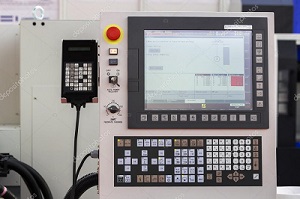Posted on 15th May 2024

Computer Numerical Control (CNC) machines have revolutionized industrial automation, shaping the landscape of manufacturing with precision, efficiency, and flexibility. From automotive production lines to aerospace components and beyond, CNC machines play a pivotal role in driving innovation, improving productivity, and enabling the realization of complex designs. This article delves into the profound impact of CNC machine on industrial automation, exploring their evolution, applications, and future prospects.
The roots of CNC technology can be traced back to the mid-20th century when early numerical control systems were developed to automate machining processes. Over the decades, advancements in computing power, electronics, and software engineering have propelled CNC machines to new heights of sophistication and capability. Today, modern CNC systems integrate state-of-the-art technologies such as artificial intelligence, machine learning, and advanced sensor networks, empowering manufacturers to achieve unprecedented levels of precision and efficiency.
CNC machines find widespread applications across diverse industries, revolutionizing manufacturing processes and unlocking new possibilities for product design and customization. In the automotive sector, CNC machining centers fabricate precision components with tight tolerances, ensuring the reliability and performance of vehicles. In aerospace manufacturing, CNC milling machines produce intricate aerospace parts with unparalleled accuracy, meeting the stringent requirements of safety and reliability. Moreover, CNC technology extends its reach to sectors such as electronics, healthcare, consumer goods, and beyond, driving innovation and competitiveness in global markets.
One of the key advantages of CNC machines lies in their ability to execute complex machining operations with exceptional speed, accuracy, and repeatability. By leveraging computerized control systems, CNC machines eliminate human error, minimize material waste, and optimize production workflows. Furthermore, CNC programming software enables engineers to simulate and optimize machining processes, reducing setup times and enhancing overall efficiency. The result is faster turnaround times, lower production costs, and higher-quality products that meet the demands of today's competitive marketplace.
In an era of mass customization and personalized products, CNC machines offer unparalleled flexibility and adaptability to changing market demands. With CNC technology, manufacturers can easily reconfigure machining parameters, switch between different production runs, and accommodate design modifications without costly retooling or downtime. This agility enables businesses to respond swiftly to customer preferences, explore new market opportunities, and stay ahead of the curve in dynamic industries.
Looking ahead, the future of CNC machines in industrial automation is poised for continued innovation and advancement. Emerging technologies such as additive manufacturing (3D printing), robotics, and Internet of Things (IoT) integration are reshaping the capabilities and functionalities of CNC systems. Additive manufacturing, in particular, holds the promise of revolutionizing traditional machining processes by enabling the fabrication of complex geometries and lightweight structures with unprecedented efficiency. Furthermore, advancements in sensor technology and data analytics are unlocking new possibilities for predictive maintenance, real-time monitoring, and optimization of CNC operations, ushering in a new era of smart manufacturing.
In conclusion, CNC machines as available on CM Industry Supply Automation (Lenze Drive & Keb Drive Supplier) have emerged as a cornerstone of industrial automation, driving efficiency, precision, and flexibility across diverse manufacturing sectors. From automotive and aerospace to electronics and healthcare, CNC technology continues to push the boundaries of what's possible, empowering businesses to innovate, compete, and thrive in a rapidly evolving global economy. As we navigate the digital age of manufacturing, the transformative influence of CNC machines will continue to shape the future of industrial automation, offering boundless opportunities for growth and advancement.